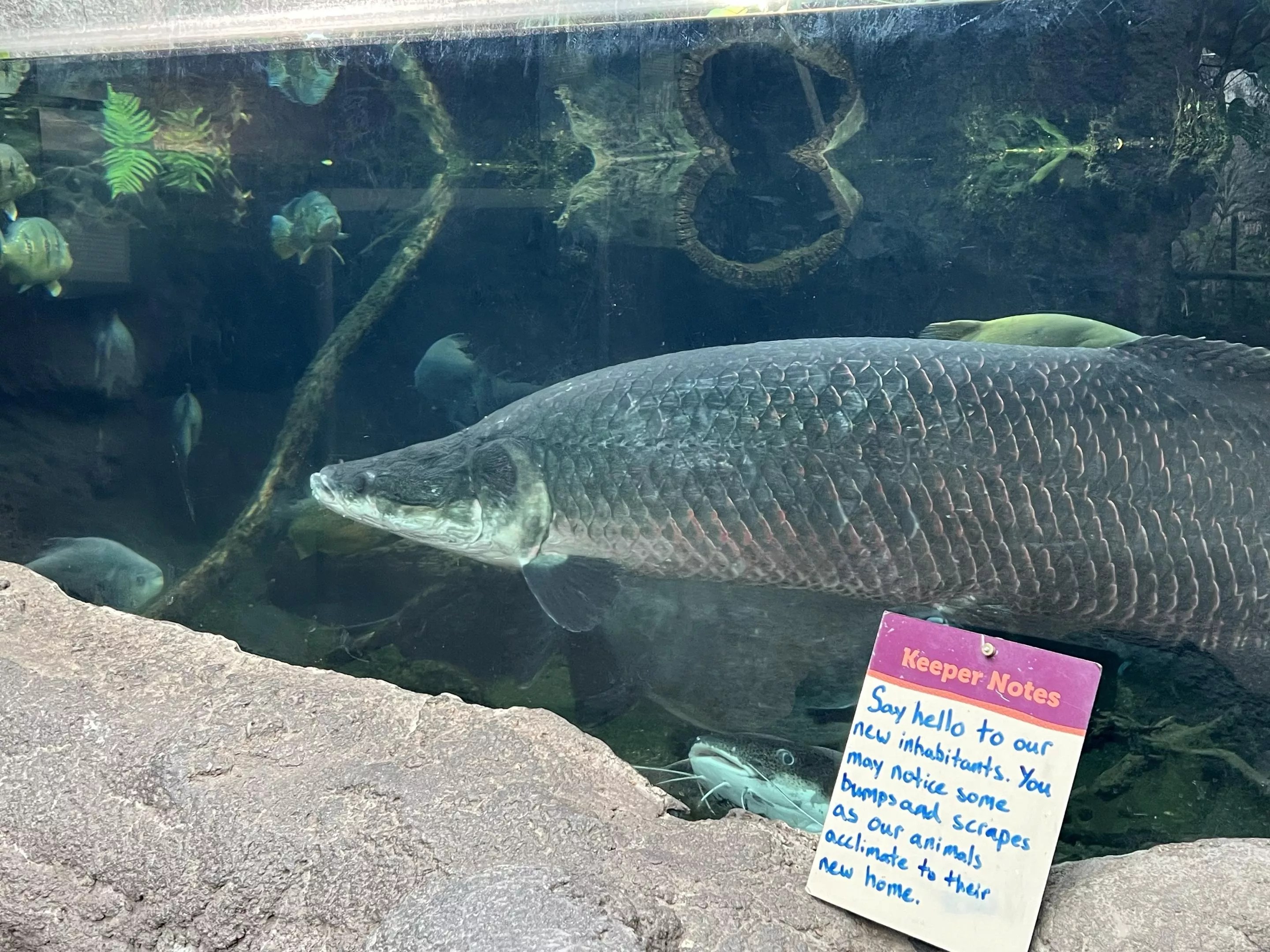
Denver Zoo

Audio By Carbonatix
Animals at SeaQuest Littleton have found new homes at the Denver Zoo and Denver’s Downtown Aquarium after the controversial interactive wildlife facility closed its location in Southwest Plaza on February 4.
According to Emily Insalaco, who leads the zoo’s animal care team, the zoo was approached by the aquarium about relocating the creatures after SeaQuest had asked the aquarium if it was interested.
“We started working in earnest with them, looking at what kind of species they were talking about and evaluating and monitoring where we could help take in some of those animals between our two facilities,” Insalaco says.
The result: Nearly 130 rescued animals are now members of the Denver Zoo family and several more are headed to the aquarium. There are lots of fish and other aquatic species as well as wallabies, South African pancake tortoises and even a toucan at the zoo now recuperating at the facility’s Helen and Arthur E. Johnson Animal Hospital and Tropical Discovery.
“They’re going through a little bit of a quarantine period where we get to know them and just make sure we’re evaluating their health and conditions and addressing anything that they need,” Insalaco says. “We hope to have everybody meet our guests and members as soon as we can. … We’re really proud to be able to have both the expertise and the resources to be able to take animals in, like the ones that we’re helping from SeaQuest.”
And if you ask those who have been protesting since SeaQuest opened its Littleton facility in 2018, it’s high time those animals got some help.

These South African pancake tortoises are now Denver Zoo residents.
Denver Zoo
SeaQuest Littleton is one branch of a national chain owned by Vince Covino, who, along with his brother Ammon, has been connected with poor animal treatment in the past. Ammon was convicted of trafficking wildlife at his Idaho Aquarium in Boise before he helped Vince open three SeaQuest locations, though not the one in Littleton.
Still, the Colorado facility has a long history of being cited for harmful, even dangerous, business practices. People for the Ethical Treatment of Animals, in particular, has continually called for the company to be investigated.
SeaQuest Littleton lost its license with Colorado Parks and Wildlife in 2019 after it reported over fifty injuries to staff and guests. Because the CPW license regulated only some of the species at SeaQuest, the operation was able to continue without licensing after replacing the species in question with unregulated ones.
SeaQuest Littleton reapplied for a new zoological license through CPW in September 2021 but never received one. The facility ran into more trouble with the state that same year, when it purchased a snapping turtle, which is not allowed in Colorado. SeaQuest was charged with illegal possession of the turtle and paid a fine.
Last July, the U.S. Department of Agriculture nailed SeaQuest Littleton with a critical citation because a sugar glider possum named Luna had to have half her tail amputated after the animal got stuck in a new enrichment structure that was added to its cage. The facility was also cited for a 2022 incident in which a Savannah cat bit a small child while the employee supervising its enclosure was distracted by another patron.
“We’re finally celebrating this announcement that the death trap is shutting down for good,” says Rebecca Smudzinski, PETA’s manager of captive animal welfare. “We’re urging the Littleton facility to finally do just one good thing before the end by sending the surviving animals to reputable places.”
Jim Prappas, director of animal operations for Landry’s, says the organization is also happy with its new arrivals at the aquarium. “We are pleased we were able to provide homes for some of the animals from SeaQuest,” Prappas says in a statement to Westword.
The Denver Zoo and Downtown Aquarium are both accredited by the Association of Zoos and Aquariums (AZA), a bragging right only possessed by about 10 percent of the nation’s facilities with USDA licenses to operate. While the aquarium – which has been owned by Landry’s, a Texas restaurant company headed by Tilman Fertitta, since 2003 – has run into trouble over its treatment of workers and certain animals like tigers and stingrays, it still has an AZA license.

This toucan can be viewed by Denver Zoo visitors soon.
Denver Zoo
The zoo has even better credentials, having also earned an Animal Humane Certification. Of the 10 percent of facilities with AZA licenses, only about a third are also Animal Humane-certified, according to Insalaco.
Although she says she can’t speak to how these animals were treated before, Insalaco is confident that the zoo has what it takes to give them good homes now.
“We’re really proud to be certified at the level that we are, and it puts us in a unique position to care for animals,” she says.
As the Denver Zoo works to integrate the creatures to their new environments, it will monitor them and determine the best methods to get the animals ready for the public to view. Some will learn from members of their species already in zoo habitats, she explains, while others will be taught about their new spaces by humans. Either way, they’ll have a team to learn from.
“So far, everyone’s doing well that we’ve seen,” Insalaco says. “We’re happy with the animals that we have currently in quarantine, and a few of them are actually going to be on exhibit a little bit faster because they’re going to quarantine within their exhibit.”
In the meantime, people can look forward to seeing more new species at the Denver Zoo, including a Blue-Tongued Skink and some “really cool lobsters,” according to Insalaca, who hints at other fun additions that will be available for viewing soon.